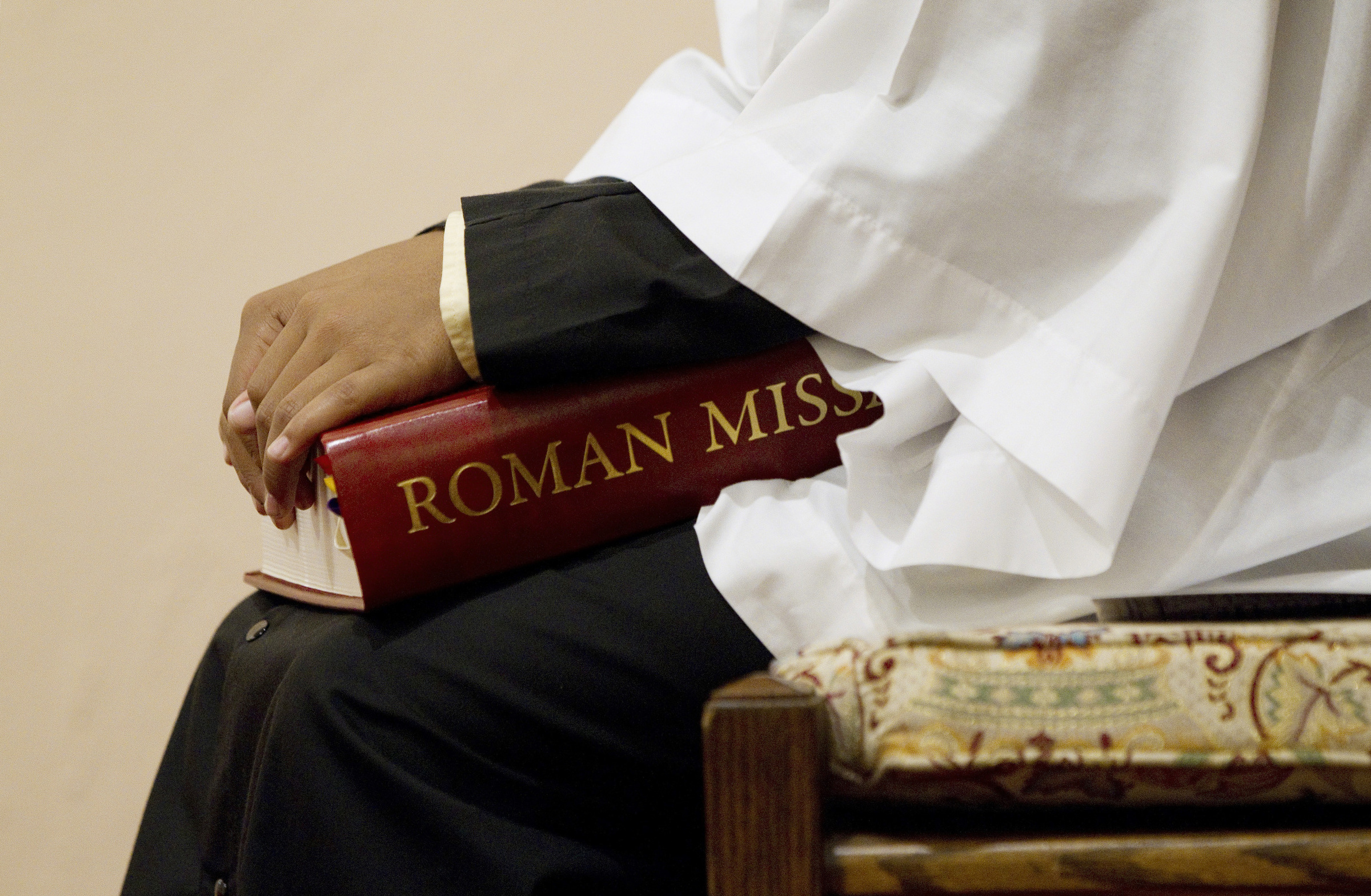Use of "oppressive" language in worship is a serious injustice to faithful Catholics, according to Australian Biblical scholar Fr Brendan Byrne SJ.
Fr Byrne, a former member of the Pontifical Biblical Commission whose academic focus has been on the Letters of Paul but who has also published books on the four Gospels, said that if the Church did not get its worship right, "that will soon redound negatively upon its proclamation and living out of the gospel, including the works of justice and mercy".
Speaking at the Melbourne launch of "Lost in Translation: The English Language and the Catholic Mass", by Fr Gerald O'Collins' and former Tablet editor John Wilkins, he said: "Worship shapes people’s image of God.
"If they are led to address the deity in language fitting for a Byzantine emperor, they will imagine and think of God – and their relationship with God – in similarly oppressive terms. If devout elderly faithful, who have spent many years in blameless and often heroic service of God and neighbour, are constantly reminded that they have behind them a lifetime of 'grievous' sinning, through their own 'most grievous fault' – though how one could 'sin' without its being one’s 'fault' is not clear – if these damning superlatives are laid upon them, instead of being consoled by God’s mercy, they will be oppressed – surely a serious injustice."
"Lost in Translation" argues that the 2010 English translation of the Roman Missal fails to achieve Vatican II's call for the full and active participation of priest and people in the liturgy and examines how the 1998 translation, which it says is clearly superior, was sidelined unilaterally by the Vatican.
Fr O'Collins taught theology at the Gregorian University in Rome for 33 years, while Mr Wilkins edited "The Tablet" from 1982-2003.
Fr Byrne, speaking at the Jesuit College of Spirituality and Jesuit Theological College in the university suburb of Parkville, said Catholics should be open to the Anglican experience of liturgical translations.
"The Latin liturgical patrimony of the Roman church is a magnificent cultural construct," he said.
"To translate it into a modern vernacular, while preserving that sense of transcendence and beauty, is an immense cultural task, perhaps the work of generations.
"Our Anglican brethren managed with some success to do so in the late 16th and early 17th century. They had at their disposal the gifts of Thomas Cranmer and the language of Shakespeare, from which of course, English has moved on.
"They too, for over a century, have wrestled with the challenge of preserving this patrimony while effectively communicating with people today. We Roman Catholics are surely not doing ourselves a service by turning our backs on whatever experience, guidance, and advice they have, fraternally, to offer."
Fr O'Collins said he had been prompted to study what was admirable about the 1998 Missal and what was deeply wrong with the translation approved for. English-speaking Catholics in 2010 when saying Mass in Italian for older Italians at a day centre housed in Caritas Christi Hospice in the Melbourne suburb of Kew.
"It’s a joy to use a missal that sounds like good contemporary Italian and communicates very well to my small Italian congregation," he said. "Shakespeare wrote of saying things trippingly on the tongue. That Italian missal says so many things trippingly on the tongue.
"But when I celebrate Mass in English, I have to use a language that its translators – maybe we should call them perpetrators _ have called 'a sacred vernacular'. It’s a language that is neither English nor Latin."
He said he hoped and prayed that a meeting this month of representatives of the 11 English-speaking conferences of bishops in Washington "really heard what John Wilkins and I have argued in this book".
"Please rescind as soon as possible the ugly, clunky translation imposed in 2010, and give us the splendid translation that was simply put on a Vatican shelf in 1998."
Pic: An altar server holds a copy of a Roman Missal during Mass at St. Joseph Catholic Church in Alexandria, Va., in this 2011 file photo. (CNS photo/Nancy Phelan Wiechec)



 Loading ...
Loading ...